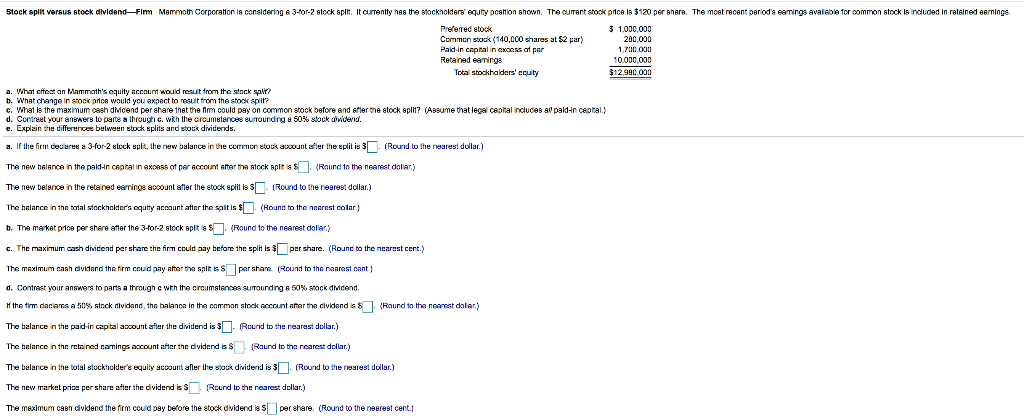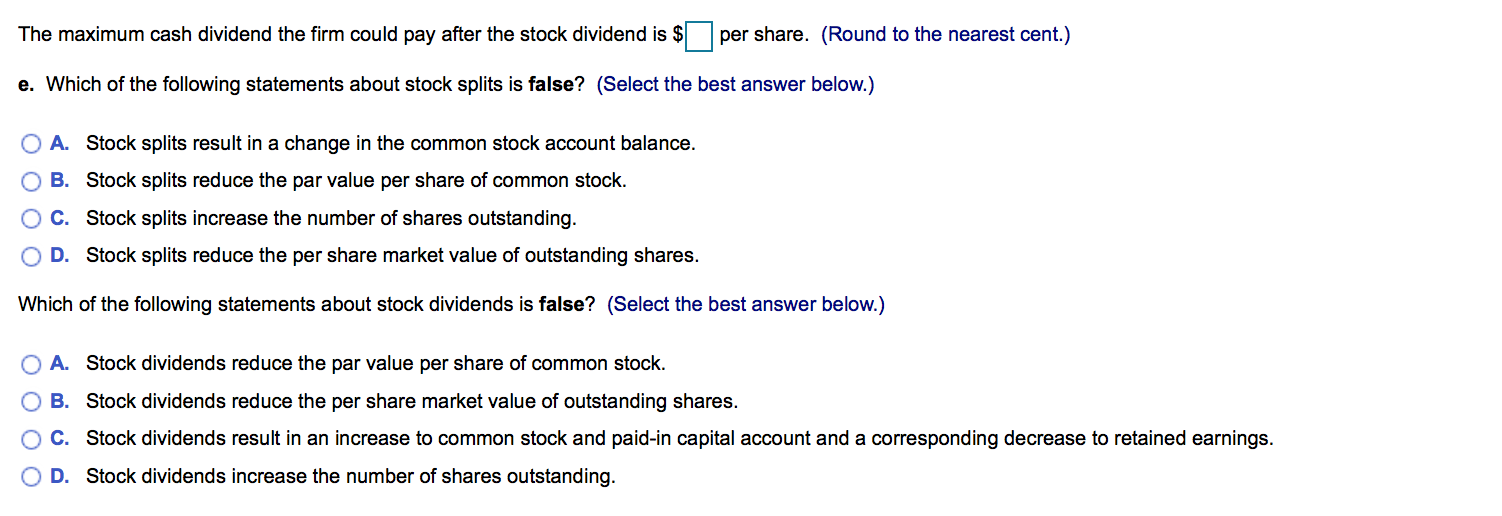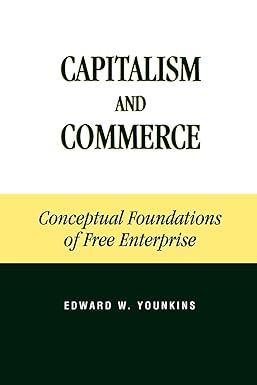

Stock split versus stock dividend Fimm Mammoth Corporation is considering a 3-for-2 stock spilt. It currently has the stockholders' equity position shown. The current stock prce is $120 per share. The most recent period's earings avaliable for common stock is included in retained earnings Preferred took 3 1.000.000 Common stock (140,000 shares at $2 par) 200.000 Paid-in captal in excess of par 1.700.000 Retained earnings 10,000 000 Total stockholders' equity $12.980.00 a. What cffect an Mammath's equity account would result from the stock salt? b. What change in stock proe would you expect to nesuit from the stock spilt? c. What is the maximum cash dcend per share that the fim could pay on common stock before and after the stock split? (Assume that legal capital includes al paid-in cephal. d. Contract your answers to parte a through c. with the circumstances surrounding a 50% stock dividend. e. Explain the difference between stock splits and stock dividends. a. If the firm declare a 3-for-2 elock split, the new balance in the common stock account after the split is 3 (Round to the nearest dollar.) The new balance in the paid in captal in excess of per account after the stock splt is $. (Round to the nearest dollar.) The new balance in the retained earnings account after the stock split is 3 (Round to the nearest dollar.) The balance in the bortal stockholders equity account atter the spitis (Round to the nearest colar) b. The market prica per share after the 3-for-2 stock splt $ {Round to the nearest dolar) c. The maximum cash dividend per share the firm could pay before the split is $ per share. (Round to the nearest cent.) The maximum cash dividend the firm could pay after the spits pershane (Round to the nearest cant) d. Contrast your answers to parts a through with the circumstances surrounding & 50% stock dicend. I the firm declares a 50% stock dividend the balance in the common stock account after the dividend is $(Round to the nearest dollar) The balance in the paid in capital account afer the dividend is $. (Round to the nearest dollar.) The balance in the retained catings account afer the dividend is S. (Round to the rearest dollar.) The balance in the tolal slockholder's equity account aller the stock dividend is $. (Round to the nearest dollar.) The new market price per share after the dividend is (Round to the reares: dollar.) The maximum cash dividend the firm could pay before the stock dividend is sper share. (Round to the nearest cent.) The maximum cash dividend the firm could pay after the stock dividend is $ per share. (Round to the nearest cent.) e. Which of the following statements about stock splits is false? (Select the best answer below.) A. Stock splits result in a change in the common stock account balance. B. Stock splits reduce the par value per share of common stock. O C. Stock splits increase the number of shares outstanding. D. Stock splits reduce the per share market value of outstanding shares. Which of the following statements about stock dividends is false? (Select the best answer below.) A. Stock dividends reduce the par value per share of common stock. B. Stock dividends reduce the per share market value of outstanding shares. OC. Stock dividends result in an increase to common stock and paid-in capital account and a corresponding decrease to retained earnings. D. Stock dividends increase the number of shares outstanding








